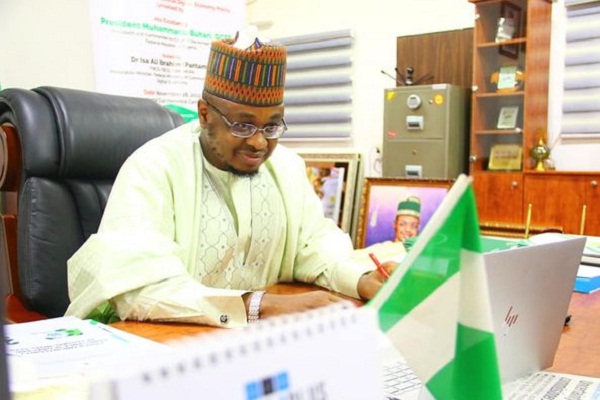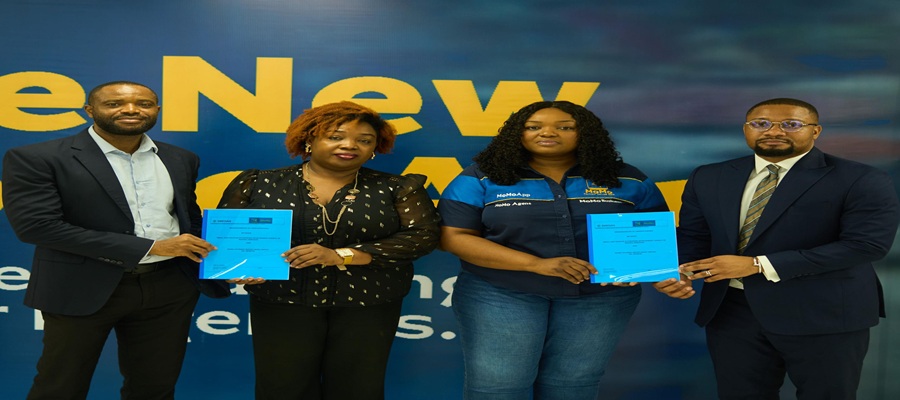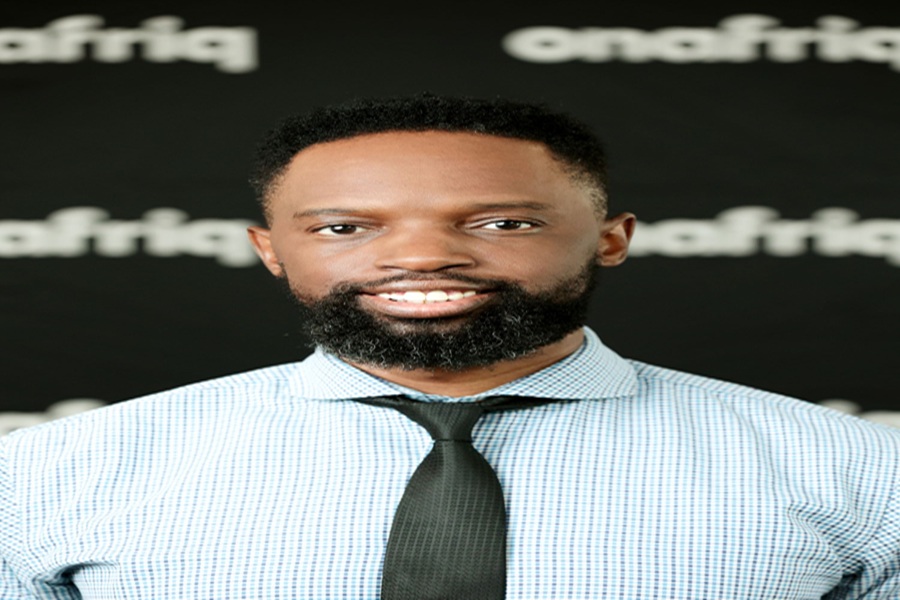Telecom
Pantami Advocates Collective Effort for Enhancing Cybersecurity

Dr. Isa Ali Ibrahim Pantami, minister of Communications and Digital Economy, has reiterated the importance of collective efforts by all stakeholders toward enhancing the security of cyberspace for Nigerians, who now depend increasingly on digital tools and platforms to carry out their daily activities.
The Minister stated this while delivering a keynote address at the 2020 International Legislative – Stakeholder Conference on Cybersecurity at the NAF Conference Centre, Abuja, on Monday, 12th October, 2020.
Represented by Prof. Umar Danbatta, executive vice chairman of the Nigerian Communications Commission (NCC), the Minister said, the conference was timely, as it was slated for the month of October, dedicated globally to raising awareness on online safety and cybersecurity.
According to Pantami, “Cybersecurity awareness has become imperative due to the attendant risks that emanate from the appreciable migration of several transactions, meetings, lectures and other forms of interaction to online and digital platforms due to the COVID-19 pandemic.”
He further noted that while there are adequate laws, policies and frameworks in the country on cybersecurity, collective efforts at fast-tracking the implementation of their instruments have become more central in view of the pandemic.
One of such instruments, he said, is the National Digital Economy Policy and Strategy (NDEPS) for a Digital Nigeria, developed by the Ministry, with eight pillars, which include developmental regulation, digital literacy & skills, solid infrastructure, service infrastructure, digital services development & promotion, soft infrastructure, digital society and emerging technologies, as well as indigenous content development and adoption.
According to Pantami, the sixth pillar of NDEPS aligns with the theme of the conference, as it essentially aims at ensuring that Nigerians are secure online.
“Furthermore, Section 106(1(c)) of the Nigerian Communications Act (NCA) 2003, states the role of the Nigerian Communications Commission in the protection of consumer information. Similarly, the National Information Technology Development Agency (NITDA) Act 2007 Section 6(l) states the role of NITDA in promoting the development of information technology to enhance national security,” he said.
He also stated that the Nigeria National Cybersecurity Framework also prescribes guidance for public and private sector organisations for instituting measures for enshrining cybersecurity culture and enthrone cyber-resiliency in Nigeria.
Speaking further, Pantami said in addition to the NDEPS, the Ministry has also developed the Nigerian National Broadband Plan (NNBP), 2020-2025 and its implementation plan, adding that efforts in this direction is in line with the Ministry’s Solid Infrastructure pillar.
“While all these ground preparations for a digital future were going on, unexpectedly, the world was struck with COVID-19 pandemic which changed the way we live.
“The impact of the pandemic led to many measures taken by governments the world over to contain the spread of the ravaging virus. Restrictions of movement as part of the measures to abate the spread gave credence to our Digital First Ideology.
“Our plan is to move all parts of the economy to the digital platform. The outbreak of the COVID-19 pandemic, which has accelerated the transition to more digitally-enabled lifestyles and ways of working has brought about a ‘new normal’ globally with new opportunities and possibilities being unlocked by digitization,” he said.
He further stated that in view of the increased migration of services online, the Ministry’s various initiatives are helping to enhance digital literacy and skills of Nigerians.
“We are also working to ensure the privacy of their data online, as the Ministry is working hard towards making Nigeria the digital economy capital of Africa by 2023.
“There are several other ongoing initiatives geared towards supporting the promise of President Muhammadu Buhari to lift 100 million Nigerians out of poverty in the next 10 years,” Pantami said.
Telecom
MoMo PSB, SMEDAN Forge Pact to Digitise Nigeria’s SMEs

MoMo PSB, MTN Nigeria’s fintech powerhouse, sealed a game-changing pact with the Small and Medium Enterprises Development Agency of Nigeria (SMEDAN) on February 3 at its Victoria Island headquarters, unleashing digital and financial tools to turbocharge SMEs nationwide for seamless operations, revenue surges, and sustainable scaling.

MoMo PSB, SMEDAN
The partnership arms SMEDAN-registered merchants with MoMo’s multi-channel arsenal—apps, POS, USSD, partner portals, and custom platforms—to hoover payments across streams, automate payrolls, juggle tills and shop chains, and boss core business metrics from one slick dashboard.
This powerhouse duo targets Nigeria’s SME engine room, where digital chokepoints throttle growth, injecting MTN’s MoMo muscle to slash friction and unlock efficiencies for mama-put hustles to mid-tier factories alike.
Industry watchers hail the MoU as a masterstroke in President Tinubu’s economic revival playbook, fusing government SME scaffolding with private-sector fintech firepower to birth a new breed of digitally dominant entrepreneurs primed for AfCFTA conquests.
Telecom
MTN Ignites Teacher Revolution: 5,000 Digitally Armed for Phase Two

MTN Foundation and SAIL Innovation Lab have roared into Phase Two of their blockbuster Teachers Fellowship Programme, onboarding 5,000 elite educators from Nigeria’s 36 states and the FCT since January 13 to turbocharge public schools with cutting-edge digital wizardry and global teaching firepower.

MTN
This mobile-first crusade, laser-focused on arming primary and secondary school titans for the digital economy showdown, kicks off with a grueling four-week virtual bootcamp via WhatsApp and Google Classroom—slashing travel barriers for even the remotest rural warriors.
Organisers promise peer-to-peer fireworks and real-time gut-checks, capping Stage One with a virtual gala saluting milestones before culling the pack to a fierce “Top 500” via engagement, assessments, and hustle for Phase Two’s inquiry-based mastery and deep-dive digital metamorphosis.
MTN Foundation’s Executive Director Odunayo Sanya lit the fuse: “Teachers are the backbone of our education system. By empowering them with digital competencies and innovative teaching methods, we are directly investing in the future of our youth.
This Fellowship Programme is designed to ensure that our educators are not just keeping pace with global best practices but are actively shaping the next generation of innovators and leaders.”
Nigeria’s heftiest private teacher uprising scales from last year’s triumphs, minting classroom commandos as state ambassadors to ignite inquiry-driven, tech-fueled learning revolutions coast-to-coast.
Telecom
Onafriq, PAPSS Launch Wallet-Based Payments Pilot from Nigeria to Ghana

Onafriq Nigeria Payments Ltd, a CBN licenced payment service provider, partners with The Pan-African Payment and Settlement System (PAPSS) to pilot the continent’s first wallet-based outbound payments from Nigeria to Ghana – fully in Naira and instant, without relying on hard currency conversion, in partnership with Banks and Mobile Money Operators.

The pilot service, approved by the Central Bank of Nigeria (CBN), enables cross-border intra-Africa payments for individuals, merchants, and traders.
In particular, the service will benefit SMEs, the real engine of intra-African trade; all now have access to a faster, cheaper way to reach customers and suppliers across the border.
By reducing barriers to cross-border trade, the new service will allow these businesses to grow their addressable markets and activity. From the 1st of December, this service will be fully operational for a 6-month period.
Through the partnership with PAPSS, Onafriq is supporting the operationalization of the AfCFTA (Africa Continental Free Trade Area) mandate.
The mandate itself is driving tariff-free trade for the 54 member states of AfCFTA. Within the partnership itself, Onafriq provides the mobile money rails, with an ecosystem consisting of over 1 billion mobile wallets.
Meanwhile, PAPSS brings a network of over 160 commercial banks, representing an ecosystem of more than 400 million bank accounts across its 19 African countries of operation.
The two partners are essentially seamlessly connecting two worlds: mobile money and banking. As a consequence, intra-African trade transactions will take place more easily and opportunities will be created.
Currently, Africa is made up of bank and mobile-led markets, with siloes often inhibiting transactions between these economies. However, this partnership will remove these boundaries. With over one billion mobile wallets and 500 million bank wallets across Africa, this partnership will allow for cross-border collaboration at scale.
This partnership builds on Onafriq and PAPSS’ existing partnership for payments into Ghana, announced earlier this year.
Mxolisi Msutwana, Managing Director Anglophone West Africa said, “Our work with PAPSS shows what collaboration at scale can unlock—seamless, secure connections between banking systems and mobile money ecosystems.
“This is how we open bi-directional trade corridors, reduce costs for businesses, and give African enterprises the rails they need to trade with confidence in their own currencies. The vision is continental, but it starts with practical steps like this one.”
Ositadimma Ugwu, Chief Information Officer, PAPSS, added “Too often, African businesses and individuals see borders as roadblocks instead of opportunities. With this step, we’re challenging that mindset, giving Nigerians the ability to send value next door with the same ease as sending a text message.
“Our vision is simple: make Africa’s borders invisible to payments. This pilot makes that a reality, moving us closer to a continent where payments don’t pause at the border.”
This new Nigeria-to-Ghana outbound capability builds on the successful Ghana-to-Nigeria instant payments corridor launched earlier this year – further proof that Africa’s payments future is local, instant, and inclusive.

 E-Financial2 days ago
E-Financial2 days agoAccidental Billionaire Opts for Jail Instead of Returning Money Credited Him by Mistake

 News3 days ago
News3 days agoUS Set to Deport 79 Nigerians on Criminal List

 News3 days ago
News3 days agoUngoverned AI is Quietly Scaling Risk in Nigeria – Dr. Naiho

 E-Financial3 days ago
E-Financial3 days agoSEC Warns of Potential Ponzi-style Risks in AURUM BOT, ModMount

 Telecom3 days ago
Telecom3 days agoAirtel Nigeria Commits to Boosting Nigeria’s Digital Infrastructure

 E-Business2 days ago
E-Business2 days agoOADC Lagos Reinforces Commitment to Local Data Hosting and Digital Transformation @ NDPC’s National Privacy Week Summit

 Telecom3 days ago
Telecom3 days agoGoogle, African Partners Launch WAXAL to Empower 100m Africans in AI Era

 News3 days ago
News3 days agoFirst Lady Commissions Dream Centre @ OAU



























